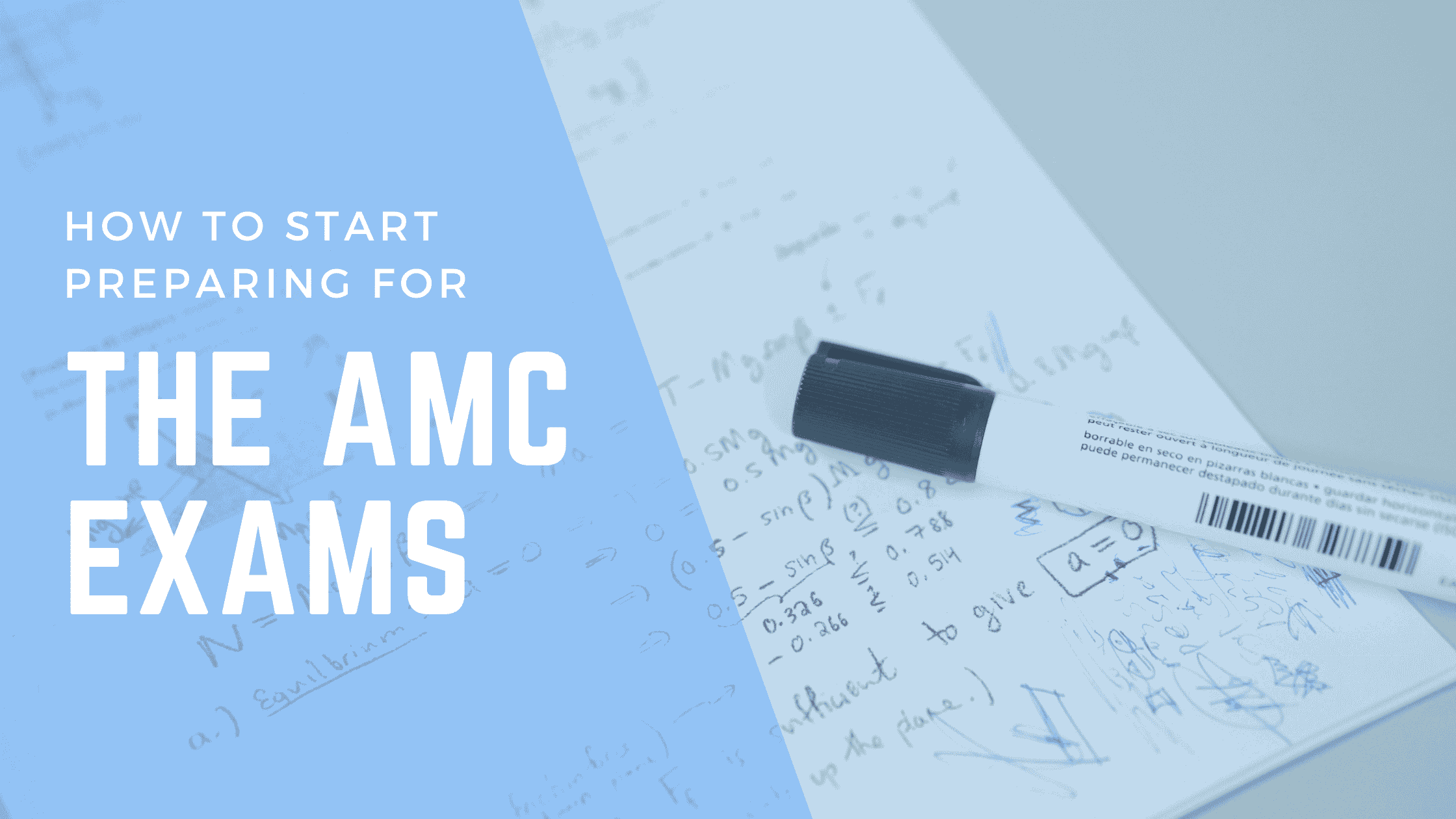The AMC is a collection of math puzzles that test your problem-solving skills. It is also the first step along a pathway that culminates in the prestigious International Mathematical Olympiad.
How do you start preparing for these exams? What are the best ways to study and practice? And is there a way to guarantee your success?
Let’s help you answer these questions.
Starting the preparation journey
Many parents and students wonder: At what age or stage should students start preparing for the AMC exams?
The real answer is as simple as it is subtle: honing your problem solving skills should be an lifelong, ongoing pursuit.
What are the foundational AMC skill categories?
Let’s call them fluency, presence, and boldness.
Fluency
Fluency is knowledge of the core material along with a clear sense of how it interlocks.
- The AMC 8 requires a solid grasp of eighth-grade math.
- The AMC 10 requires fluency in Algebra I, Geometry, and a bit of Algebra II.
- The AMC 12 also requires fluency in Algebra II, trigonometry, and half or more of an ambitious precalculus course.
This fluency requirement isn’t tied to age or grade level.
Presence
Foundational skills here revolve around meticulousness, self-management, and other related performance-oriented skills. Most bright students accustomed to solving problems through sheer intellect find that the necessary skills of meticulousness, strategic thinking, diligence, pacing, and the ability to represent one’s thoughts on paper are impossible to acquire without focused coaching, and yet are also required for consistent success.
Boldness
What do you do when you don’t know what you’re doing? A “toolkit for the unknown” is a huge boon for the AMC exams and for life in general. The ability to plan for moments of uncertainty will be a superpower for the rest of your life.
What’s the best way to study for the AMC?
The best way to prep for the AMC is to work with a skilled coach who is familiar with all three categories of necessary skills, and who understands the the big-picture goal is to become a better thinker.
This will likely involve a thorough examination of each of your mistakes. Instead of being handed the correct answer, you’ll gain an understanding of the process that led to an incorrect response… and you’ll then have the power to choose a different, better process for the future. Such self-analysis is just one of the many ways in which a skilled coach will make sure you come out with the skills to excel in life.
https://www.tiktok.com/@wctc_us/video/7380414260259638559
How do you handle schoolwork and extracurriculars with AMC prep?
Balancing AMC preparation with schoolwork and other activities is often challenging.
I advocate for having students spend time learning new skills. I do not advocate for “checking the box” of completing yet another activity for the sake of having a longer list.
Which is why I frame the AMC as “a smarter sport, if you’re a smart kid.” A huge fraction of kids play sports. Only a very small fraction of those will become professional athletes, but almost everyone will use intellectual skills throughout their lives.
So rather than spending hours a day on a sport, let’s focus here.
Training for math competitions involves strategic thinking, problem-solving skills, and continuous improvement. Which is most of what students try to get out of sports.
Experience expert coaching
Unlock your potential with targeted AMC coaching at Wes Carroll Tutoring & Coaching.
Strategize, prepare, and succeed with our tailored guidance. We will help turn your determination into great AMC outcomes, as part of your journey to cognitive excellence.
Pick a time to discuss AMC coaching with us today.




0 Comments